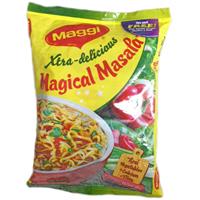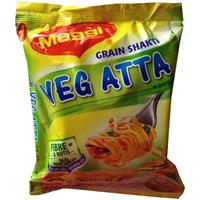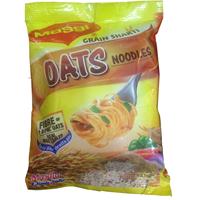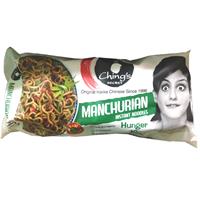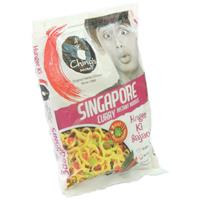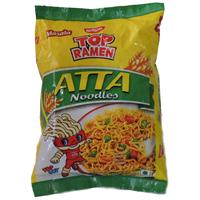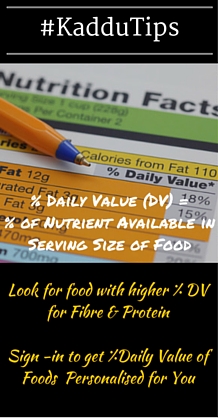
Maggi Magical Masala Noodles
Products in ‘Instant Noodles’ category range from 0.5 - 3


- Compliments of Vitamins & MineralsThe micronutrients (Vitamins/Minerals) play an important role by ensuring proper functioning of cells and tissues.Each vitamin and trace mineral play a specific role in the body. For example, Vitamin C acts as antioxidant protecting cells from environmental damage, healing wounds and maintaining connective tissue whereas minerals like sodium, potassium and chloride function as electrolytes that assist in communication between cells necessary for nerve impulses and muscle contraction.Some products mimic the nature by adding artificial vitamins or minerals which have an identical form and function to those found in nature, but they are manufactured synthetically to meet extremely high standards of processed products.
- Food Sensitivity Alert for MSGMonosodium glutamate (MSG) is the sodium salt of the common amino acid i.e. Glutamic acid, popular for its usage as flavouring agent in Asian Cooking.This glutamate salt is also found naturally in various foods such as tomatoes and cheese as well as ingredients such as hydrolyzed vegetable protein, hydrolysed groundnut protein, autolyzed yeast, hydrolyzed yeast, yeast extract, soy extracts, and protein isolate.Some people are sensitive to MSG having adverse effects such as headache, depression, etc. on regular consumption of this salt. Indian law requires that foods containing Added MSG list it in the ingredient panel on the packaging with the warning that it should not be consumed by infants below 12 months. However, if ingredients that have naturally occurring MSG, are added to the product then the product may not specify in regards to its presence.Pregnant & Lactating women & Infants should avoid Products containing MSG .
- High in Fat
Calories in a food come from carbohydrates, protein and fat. The above product however has more calories from fat, which is not desirable and thus is considered “high in fat”.
So think again before you go binging on it, as every gram of fat matters!
- Know your Food - Hydrolyzed Vegetable ProteinHydrolyzed Vegetable Protein (HVP) is used to enhance the flavour of processed foods such as soups and snacks. HVP is created from cereals and legumes such as groundnut, corn, soy and wheat by processing that results in proteins being broken down into amino acids. One of those amino acids is glutamic acid which is a form of monosodium glutamate (MSG).Though HVP is not same as MSG it does contain the compound. So, if you are sensitive to MSG you should avoid consuming foods that contain HVP. Also, take care the food ingredient label may use differen terms to indicate the source of HVP such as Hydrolyzed Groundnut Protein.
- Make the Noodles Healthier
The general consensus is that noodles/pasta is an unhealthy dish, thanks to the extra sauces and cheese added along with the high carbohydrate hype, thus your favourite noodle just won't give you a “healthy plate”. But a few changes to these humble strands will make it healthy.
- Adding more of fibre rich green leafy veggies (spinach, lettuce) and other veggies (carrots, onions, roasted eggplant, peppers) or sprouts is a great start to reducing portion size of just plain pasta.
- Instead of heaping your pasta with white sauce, adding a slice of melted cheese or grated mozzarella will give the flavour required.
- Also, do not throw away the water you boiled the pasta/noodles in. Use it to make sauces as the starch in it helps add more flavour to the dish.
- Adding a little protein in the form of few minced meat or shredded chicken pieces will give good flavour.
- And last but not the least sprinkle some herb mix of (rosemary, thyme, basil, chilli) to make the dish come alive. With these small steps make healthy eating your long term goal.
- Highly Processed!Additives are added to the packaged foods for different reasons varying from increasing shelf life, to provide flavour and texture, increasing nutrition quality or required to manufacture some types of food.One of the ways to determine the degree of Processing is the number of additives you find in the ingredient list. The higher the number of additives greater is the degree of processing. Additives can be identified by looking for ingredients that begin with 'E' and have a number in them.It is generally recommended that food that is closer to nature is better hence it is better to choose food products with lesser number of additives.
Disclaimer:Product Analysis is based on general practices in the field of Nutrition. Please check with or consult a qualified and licensed medical professional for its suitability to you.

